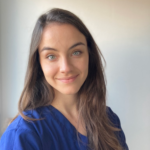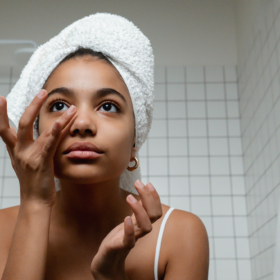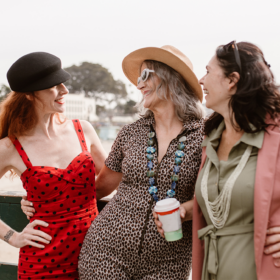
A doctor’s experience of sexual health in rural South African communities
Picture this: you’re fifteen years old. You haven’t had a period for five months. It only started two years ago so you aren’t sure of your ‘normal’ yet but five months seems too long. You’re unsure what a menstrual cycle is, what to expect, what it all means for your body.
Your family and school have definitely neglected, no, refused to inform you of how your own body works because you’re a teenager and live in a rural, conservative farming community. You shouldn’t know what sex is, never mind the implications of it. You go to the local hospital to see if you’re broken or dying. It turns out you’re 23 weeks pregnant. The doctor gives you a judgmental look and wonders how you possibly couldn’t have known that you were more than halfway through a pregnancy. You didn’t know, because no one told you.
You’re told by the doctor that you can’t legally have an abortion. “We could have offered you one 3 weeks ago. Why did you wait so long?” You become a mother to a child, as a child, and your family is thrilled because this means they can prove you’re fertile and marry you off well for a large lobola* to your child’s father who happens to be 23. Although traditionally acceptable, this is statutory rape and illegal. You didn’t know, because no one told you.
You don’t go back to school because your teachers are sure you’ll be a bad influence towards the other girls so you stay at home, get a child support grant each month, and have a baby every other year until you turn 22 and the doctor at your antenatal visit asks in horror how you could possibly have five children at your age when there are so many contraceptive choices available. You didn’t know, because no one told you.
My experience as a doctor
I can’t tell you how many young women’s lives could’ve been different if at any point someone had just told them, spoken to them, informed them of what their bodies were capable of and how science could help them. For a year I worked in a small rural community in KwaZulu Natal, South Africa and witnessed first-hand how vastly different my experience as a woman had been, and is, compared to most of my patients living there.
I was educated, independent and fully empowered to do with my body as I pleased. They were not. I found so much of my time at work, which so often was as exhausting as it was fulfilling, was spent with women. Women as patients, mothers, caretakers and colleagues. Women who I was horrified to learn were so fundamentally similar but could not be further from me and my life.
Traditional old wives tales, social systems of a terrible past, short staffing in clinics and the abomination that was sex education at schools lead to the inevitable: unplanned babies. Babies who, if female, would likely fall into the same cyclical tragedy of life in a developing country during the twenty first century.
This blew my mind. It still does. We know so much and do so much in the world of sexual health with an amazing movement towards de-stigmatising the entire subject and yet, for so many, access to a pill that was developed and distributed in the 1960s is for all intent and purpose, out of reach. This, as with so many complex issues in the world, is multifactorial. Fix one thing and another problem will rear its head and ensure that you end up back at square one.
Inequality and access to contraception
During the apartheid regime in South Africa the only form of contraception available to black women was the injection. A three monthly hormone based injection given regularly at the clinic. Post-1994 South Africa ensured that this was no longer the case, however when the only method of contraception the women in your family have ever tried is the injection, it stands to reason that the only form you’ll try and trust would be the same. Right?
This has turned out to plague any and all contraceptive drives since in South Africa. The injection is horribly impractical in South African and most developing world contexts. There is significant stigma surrounding having to go to the hospital with comments like ‘do you have HIV?’, ‘can we catch whatever illness you have?’, ‘oh my gosh- she’s pregnant!’, ‘she must be going to get contraception. Tut tut…’, amongst others, which would circulate regularly as the town gossip. With the vast distance our patients had to travel and the poor health seeking nature of most communities, it’s no surprise that the injection was not an effective form of contraception in these communities, simply because it wasn’t being used properly.
Oral contraceptive pills, intrauterine devices (aka IUDs or coils) and implants have since been pushed into the health sector with great velocity and minimal uptake. Antenatal clinics (where you see a doctor or midwife during your pregnancy) are now ironically the best spots for contraceptive counselling, proving that while prevention is better than cure, we just can’t catch every patient in time. At least, we can reduce the chance of further unplanned pregnancies. In the same vain, high schools remain the single most volatile places to be ‘pro-choice’ (on any subject pertaining to sex) and the departments of health and education still haven’t decided who’s responsibility it is to implement sexual and basic health education in the classroom. So it remains undone.
Luckily, we’re given a huge amount of information on health, sex and contraception in the UK from a very early age. The Lowdown, for instance, is one of the most informative and open platforms I’ve seen and I’m thrilled that you’ve found this piece here. Please use The Lowdown, your GP, or local clinic, to find out as much information about YOU and your options as you can. Talk to your best friend, parents or partner. Find your normal and listen to your body. Then use the incredible science of medicine to make it work for you and with you, to be the best you.
I’m sure you can pick up the frustration I feel and felt working in a space so opposed to the forward trajectory of women’s health (and rights) but I’m not writing this to have a good whinge and moan about my people, my home or my job. I’m writing this so you know, because someone told you.
*lobola- Zulu, Swazi, Xhosa, Silozi and northern and southern Ndebele, sometimes referred to as “bride wealth” is property in livestock or kind, which a prospective husband or head of his family undertakes to give to the head of a prospective wife’s family in gratitude of letting the husband marry their daughter.
Our medical review process
This article has been medically reviewed for factual and up to date information by a Lowdown doctor.





